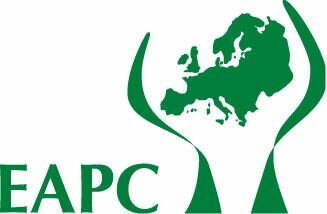|
Sign the Declaration of Venice and Support Palliative Care |
|
|
Adoption of a Declaration to Develop a Global Palliative Care Research Initiative |
||
|
In May 2006 during the 4th Research Forum of the EAPC in Venice, the EAPC and IAHPC convened a meeting and joined forces with other regional and academic organizations to initiate this global initiative. The following organizations were represented at the meeting:
As a result of deliberations and discussions during the meeting, the group adopted and signed the following Declaration of Venice, to support the global development of palliative care research. The Declaration of Venice Palliative Care Research in Developing Countries The individuals signing below representing several international, regional, and national hospice and palliative care organizations, Recognizing that more than 1 million people die each week, that only a minority of those in need receive palliative care and that widespread unnecessary suffering results, Recognizing that the World Health Organization definition of palliative care calls for “impeccable assessment and treatment of physical symptoms and of psychological, social and spiritual problems”, Recognizing that palliative care includes not only the development of clinical services but also a focus on research and education, Recognizing that there are limited resources for health care, and research is needed to ensure that the maximum benefit can be provided within what is available, Acknowledging that palliative care research is an essential tool for the advancement of the best interests of patients and families affected by incurable, advanced disease, Acknowledging that appropriate and well-conducted evidence based research is vital to identify optimal treatments and services, Acknowledging that research in palliative care has increased significantly in the last decade, but that the proportion of research conducted in developing countries does not account for the burden of disease these countries face, Acknowledging that inspite of the increase in palliative care research, there are few resources devoted to the translation of new knowledge and evidence into practice in ways that benefit patients and the families around the world, Acknowledging that research in resource rich countries may provide only partial benefit for countries with limited resources, Concerned that articles published in scientific and palliative care journals are often based on studies of patients in developed countries, resulting in treatment protocols which are not necessarily applicable elsewhere, Concerned that the majority of the journals are published in developed countries and the subscription costs are extremely high in developing countries, Desiring to develop an agreement to support the development of research in palliative care in developing countries, Hereby agree to work and collaborate together to:
The representatives recommend the following:
The representatives, Express the hope that adequate resources will be made available to support the implementation of research practices in palliative care in developing countries, including evidence based research. Invite academic institutions, teaching hospital and universities in developing countries to adopt the necessary practices and changes needed to ensure that palliative care research protocols, positions, resources, personnel, infrastructures, review boards and systems are created and sustained. Invite professional organizations, national palliative care organizations and other interested parties to join this campaign and thereby help to improve the quality of care given to patients in advanced stages of their disease. Urge governments in developing countries to provide the necessary support to carry out and implement palliative care research in academic institutions. Urge organizations, institutions and programs to learn from existing succesful collaborative palliative care research initiatives among developed and developing countries. Urge successful palliative care research teams to twin with emerging research teams in developing countries to provide scientific and technical support, technology and knowledge transfer, and financial resources when possible. Done at Venice, Italy on the twenty-sixth day of May, two thousand and six. In witness whereof the representatives have signed this Declaration.
|

